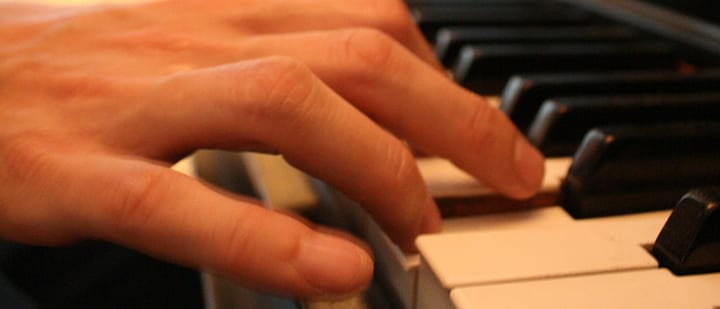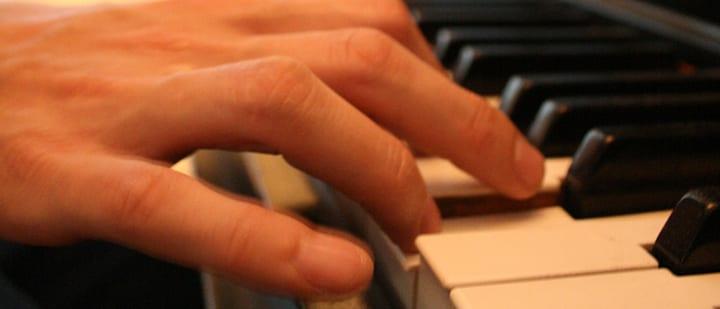 Excited about learning piano? Thinking about and setting specific goals is a must-do before you start your lessons. Learn how to set yourself up for success in this guest post by Helendale, CA teacher Sylvia S...
Excited about learning piano? Thinking about and setting specific goals is a must-do before you start your lessons. Learn how to set yourself up for success in this guest post by Helendale, CA teacher Sylvia S...
Are you looking for a way to set goals for your piano lessons? Are you unsure of where to start? If so, this post is for you! In today’s article, we will discuss how to set the right goals for your piano lessons.
By following these tips, you can ensure that you and your teacher are working towards the same goals and that your lessons are productive and successful. So, what are you waiting for? Read on to learn more!
How Do You Set Goals for Piano Lessons?
As a student, it is important to set goals for your piano lessons. This will help you to stay focused and motivated as you progress through your learning. There are a few things to keep in mind when setting goals for your piano lessons.
- First, be realistic in what you can achieve. It is important to set goals that are challenging but achievable.
- Second, make sure your goals are specific. Rather than setting a goal to “learn more about music theory”, set a goal to “learn the names of all the notes on the piano”.
- Finally, make sure your goals are measurable. This means that you should be able to track your progress and see if you are meeting your goal. For example, rather than setting a goal to “ improve my playing”, set a goal to “practice for 30 minutes every day”.
By following these tips, you will be well on your way to setting goals for your piano lessons that will help you succeed.
Ask your piano instructor for tips as you create goals for your piano lessons. Here’s a video with more information on all the benefits of piano lessons:
https://www.youtube.com/watch?v=kJlInwy1yBs
What is the Purpose of Piano Lessons?
For many people, learning to play the piano is a lifelong dream. For others, it is simply a way to pass the time. But what is the purpose of piano lessons? Is it to learn how to play classical pieces? Is it to develop a love of music? Or is it something else entirely?
In truth, there is no single answer to this question. Each person who takes piano lessons does so for their own reasons.
Some may want to learn how to play beautiful classical pieces. Others may want to develop their skills so that they can one day perform in a band or orchestra. And still others may simply enjoy the challenge of learning a new skill. Whatever the reason, there is no wrong answer when it comes to taking piano lessons.
So if you have always dreamed of playing the piano, don’t let anything hold you back. There are no right or wrong reasons to learn. Just sit down at the keyboard and see where the music takes you.
Goalsetting for Piano Lessons for Adults and Kids
You’ve been thinking about learning piano lessons for a while, or maybe you’ve been away from the piano for a while and want a refresher. Maybe your family relocated or your piano teacher retired, got married, or changed to a different career. Whatever happened, you’re ready for your lesson, and you’re ready to set some goals.
So what is a goal?
One person might want to learn to play a favorite song on the piano by the end of summer by practicing for half an hour a day on a family keyboard, because he likes the song and wants to play it for his friends when school starts.
Another person might intensely desire to master both classical and popular music on the piano by practicing on a grand piano in her living room from one to four hours a day, five days a week, over a period of 15 years, because she is from a musical family and wants to make playing piano her career for life.
Finally, we have the average piano student who just wants to learn how to play.
With such a vast range of options, setting a goal for learning piano can seem challenging. Fortunately, even if you haven’t had much success with goal-setting in the past, piano lessons are a great way to learn how! The right goals are S-M-A-R-T:
S is for Specific
What kind of piano music would you like to learn? Do you prefer popular songs from the internet or the radio? Do you like instrumental piano music, like classical or New Age? Are you curious about all the details, with a burning desire to learn all about music theory? If you’re a parent, what are your expectations? Do you and your child share the same tastes in music?
M is for Measurable
When do you expect to achieve your goal? Are music lessons a long-term investment, or are you just trying things out? Do you value an impressive goal enough to put in months, or even years, to achieve it? Would you prefer simpler, shorter, mini-goals that can be achieved each week?
A is for Attainable
Is there a piano or keyboard available for practice in your home? Is there time in your schedule to practice regularly? Are you new to piano, have you been playing for a few years, or is your musical experience on a different instrument? Sharing your ideas for goals with your piano teacher is a great way to open the conversation and work together on creating goals that you can achieve.
R is for Rewarding
Why do you want to play piano? Is it that you’ve always loved the sound of the instrument, or that your living room piano is collecting dust? What’s in it for you?
T is for Trackable
How will you know when you’ve achieved your goal? Back in the day, the only way to track a budding pianist’s performance was at an annual recital. Fortunately, those days are fading into a dim memory, and practically anyone can record and upload a video with the chance to become a global phenomenon.
Okay, we’ve covered all the letters for S-M-A-R-T. Once you get used to using this acronym, you can use it to help you set goals for practically anything you want to achieve in life, including setting the right kind of goals for learning piano!
Can You Meet Your Goals With Online Piano Lessons?
You have always wanted to learn to play the piano. It has been a lifelong dream of yours, and you are finally ready to take the plunge. But with your busy work schedule and family commitments, you just don’t have the time to commit to traditional in-person piano lessons. You have seen ads for online piano lessons, but you are skeptical. Can you really learn to play the piano by taking lessons online?
The answer is a resounding yes! With the advancements in technology, it is now possible to take high-quality piano lessons online from the comfort of your own home. You can choose the time and day that works best for your schedule, and you can learn at your own pace.
Many online piano courses offer interactive features, such as video chat and forums, which allow you to connect with other students and get feedback from your instructors. You will also have access to a library of online resources, including sheet music, practice exercises, and instructional videos.
So if you are looking for a convenient and flexible way to learn to play the piano, consider taking online piano lessons. With a little dedication and practice, you can achieve your goal of becoming a skilled pianist.
What Benefits Come from Playing the Piano?
The piano is a hugely popular musical instrument, enjoyed by people of all ages around the world. Playing the piano has a number of benefits, both for the player and for those who listen to the music.
One of the most obvious benefits of playing the piano is that it helps to improve coordination and motor skills. The player must use both hands to play, often in different sequences, which can help to develop better hand-eye coordination.
In addition, playing the piano can also help to improve memory and concentration. This is because players need to remember not only which keys to press, but also the order in which they need to be pressed. As a result, regular piano practice can help to sharpen mental focus and boost memory power.
Finally, playing the piano can be a great way to unwind and relieve stress. The act of playing music can be very soothing, and listening to relaxing piano tunes can help to lower blood pressure and heart rate. Thus, whether you’re looking to improve your cognitive skills or simply relax and de-stress, playing the piano can be a great option.
Beginner Piano Lessons Goals
Goal setting is important for piano lessons because it can help you focus and achieve your objectives.
If you’re looking to set some SMART goals for your next round of piano lessons, our team of talented piano teachers can help! Let us know how we can assist you in reaching your musical milestones.
 Sylvia S. teaches singing, piano, theater acting, and more in Helendale, CA. She comes from a musical family of several generations, and her experience includes playing an electric keyboard and singing vocals in a professional, working band. Learn more about Sylvia here!
Sylvia S. teaches singing, piano, theater acting, and more in Helendale, CA. She comes from a musical family of several generations, and her experience includes playing an electric keyboard and singing vocals in a professional, working band. Learn more about Sylvia here!
Photo by theogeo
Suzy S.

